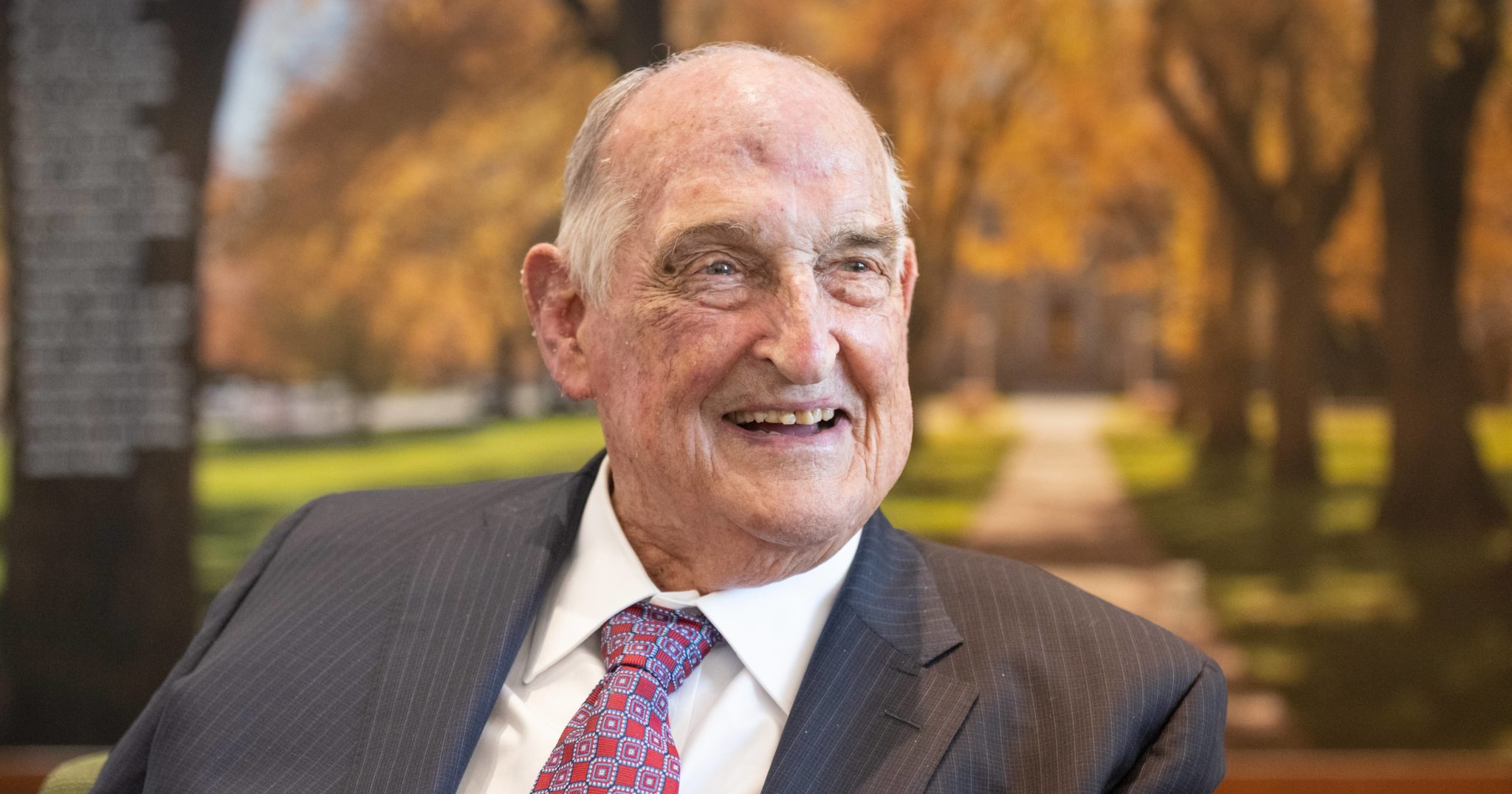
Walter Scott, Jr., one of the true giants in Colorado State University’s history, has died at the age of 90.
Calling on the CSU community to both mourn Scott and celebrate him, CSU President Joyce McConnell said: “We are all grieving deeply the loss of one of our own, and specifically the loss of Walter’s incredible vision and incomparable heart. He truly lived in a spirit of generosity and optimism that has changed CSU and our world for the better – forever. He will be missed, but his legacy absolutely lives on.”
A 1953 civil engineering alumnus, Scott was driven by a powerful philanthropic impulse to become the largest donor in the university’s history. Scott’s historical giving to CSU through his foundation totals $64.2 million. This extraordinary generosity prompted the dedication in 2016 of the Walter Scott, Jr. College of Engineering.
“We are terribly saddened to learn of Walter Scott’s passing,” said Tony Frank, Chancellor of the CSU System. “Walter had a big-picture approach to philanthropy and loved envisioning the possibilities for CSU’s engineering programs. He became an adviser and then a friend. His long-term impact on the university is incalculable.”
Scott began a career in his hometown of Omaha, Nebraska, with international construction firm Peter Kiewit Sons’, Inc. He served as the company’s CEO from 1979-98, earning acclaim as a leader in the industry.
Scott and his late wife were renowned as philanthropists in the Omaha community, also providing active leadership to charitable organizations. Their Suzanne & Walter Scott Foundation supported a broad array of charitable causes, but they were most associated with Omaha’s Henry Doorly Zoo & Aquarium, Joslyn Art Museum, Children’s Hospital & Medical Center, Boy Scouts and the Avenue Scholars program for at-risk youth. On the national level, Scott was a director and past chair of the Horatio Alger Society.
Unprecedented generosity
Scott’s unprecedented generosity to CSU included a lead gift for the Suzanne & Walter Scott Bioengineering Building and funding for student Scott Scholarships.
“Walter Scott was a tremendous friend to our college,” said David McLean, dean of the Walter Scott, Jr. College of Engineering. “When he was on campus, he most enjoyed the opportunity to interact with our students. He often emphasized his wish that CSU use his gifts to enhance their educational opportunities while also building upon the university’s tradition of excellence.”
Scott often referred to his philanthropy as investments in the future. At the dedication of the college, he said to its students, “Charitable investments are the same as other investments. You expect them to produce a return. In the case of investing in the students of CSU, I hope my investment helps develop the next generation of leaders – those who will do great things for our country. My job is done. It’s now up to you to make sure my investment lets you do great things.”
Graduates of CSU who benefitted from Scott’s support are now using their engineering education to follow Scott’s wish that they make an impact upon the world. The term “Scott Scholar” has become a badge of honor among students in the college.
Also thanks to Scott’s giving, CSU hired two outstanding faculty as Scott-funded presidential chairs. Tami Bonds holds the Walter Scott, Jr. Presidential Chair in Energy, Environment and Health, and James Hurrell holds the Walter Scott, Jr. Presidential Chair in Environmental Science and Engineering.
Among his many awards, Scott was named an Honor Alumnus in 1982, presented an honorary doctorate in 2003 and the William E. Morgan Alumni Achievement Award in 2014. He was awarded the Founders Day Medal – CSU’s highest honor – in 2018.
Scott is survived by his four children with first wife, Carolyn (BA English ’53). His 1987 marriage to Suzanne Singer brought two more children into the family. He is also survived by many grandchildren and great-grandchildren.